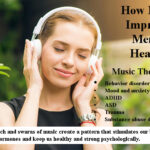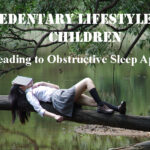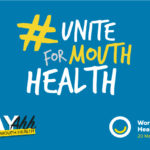Speech Language therapy for children with cleft lip and palate should begin as soon as possible. Children with a cleft that affects their soft palate (the part towards the back of the throat) may have problems with speech that include sounding nasal. Children who start therapy early tend to have greater success.
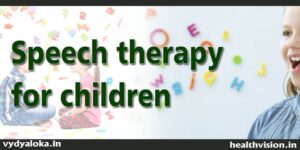

Introduction:
Speech language therapy is care that helps kid’s improve speech, understand and use language, communicate in nonverbal ways (listening, taking turns, etc.) Speech-language pathologists (SLPs) also called speech therapists that treat many types of communication and swallowing problems. They have at least a Bachelor/master’s degree and certification/licensure in the field, and a registration from the Rehabilitation council of India (RCI). Speech-language pathologists help kids with speech disorders (like stuttering), hearing problems, and other medical conditions, including cleft palate.
Role of Speech therapist for CLP (Cleft lip and Palate):
SLPs who work with children with cleft palate have extra training to recognize and treat specific problems caused by a cleft palate. Children born with a cleft palate may need speech-language therapy to help with problems such as: Articulation and Resonance Disorders.
An articulation disorder is when a child has trouble making specific sounds. “Cleft palate speech” refers to speech sound errors that are more common in kids with a cleft palate. These include:
1. Glottal stops: formed by a “pop” of air when the child forces his/her vocal folds (located in the voice box) together. The release of air can make it sound like a child is omitting a consonant (like saying “–all” for “ball”).
2. Nasal fricatives: formed by directing the stream of air through the nasal cavity, instead of the oral cavity, during speech. It sounds like the child is “talking through his/her nose” for particular sounds, like S in the word “sun.”
3. Pharyngeal fricatives: formed by pressing the base of the tongue against the back of the throat and releasing a stream of air for speech. It can sound like the child is using a “raspy H” for particular sounds, like SH in the word “shoe.”
4. Mid-dorsum palatal stops: formed when the middle of the tongue contacts the middle of the roof of the mouth and used as a substitute for these sounds: T, D, K, and G. When the child produces a mid-dorsum palatal stop, it often sounds “in between” a T and a K.
A Resonance disorder refers to an unusual amount of nasal sound energy when the child is talking, which can result in: hypernasality (too much nasal sound energy): This makes a child sound “nasally.” hypo nasality (too little nasal sound energy): This makes a child sound like he/she has a cold, mixed (a bit of both) resonance. Hypernasality may mean that the child’s palate is not working properly, called velopharyngeal dysfunction. This can make it hard for others to understand the child’s speech, and might need further treatment.
Goals of Speech therapy:
Speech therapy works best when a speech-language pathologist works one-on-one with a child. Sometimes, though, therapy is done in small groups. The main goals to help children with “cleft palate speech” are to:
- Establish correct articulation (placement, manner, and voicing) using articulation therapy techniques.
- Ensure there is good oral pressure during sound production.
- Establish new motor speech patterns that replace speech sound errors.
Parental Contribution for Speech-therapy:
Speech therapy should begin as soon as possible. Children who start speech therapy early tend to have greater success. Therapy also can help older kids, but their progress can be slower because their motor patterns are more ingrained. Support from parents is key to the success of a child’s progress in speech therapy. Kids who complete the program quickest and with the longest-lasting results are those whose parents are involved. Therapist should give homework to do after each session. Helping the child complete these activities will ensure continued progress and carryover of new skills. For example, practicing the P sound for 30 minutes a week in therapy is much more effective when it’s also done for 10 minutes a day at home.
The process of overcoming a speech or language disorder can take some time and effort. So it’s important that all family members be patient and understanding.
How Can We Find a Speech Therapist?
The Rehabilitation council of India (RCI) has CRR (Central rehabilitation register) of passing graduate and post graduate students in their website. To be registered by the RCI, each student must have a passing certificate. SLP can recommend other cleft-trained SLPs in concern area if they want to use school-based and/or private services. Local SLPs also will be helpful:
- if they have worked with children with these specific speech sound errors
- how many children with cleft palate they have worked with?
Sometimes, speech assistants (who usually have a 1-year diploma degree) may assist with speech-language services under the supervision of RCI-certified Graduates/post graduates professionals. SLP should be licensed in state level and have experience working with kids and child’s specific disorder.
Conclusion:
Children with a cleft that affects their soft palate (the part towards the back of the throat) may have problems with speech that include sounding nasal. This is caused by the soft palate not being able to properly close off the mouth from the nose while speaking and therefore letting air escape through the nose. A speech pathologist is a critical part child’s cleft palate team. Speech pathologists provide support from the early days by assisting with feeding and into childhood as our child master’s speech with the continuous changes they will undergo the first few years of life.
Individuals with cleft lip and palate may also exhibit dysphonia. This is characterized by breathiness, hoarseness, and low intensity of voice during speech tasks. This is usually due to increased respiratory and muscular effort, and hyper adduction of vocal folds while attempting to close the velopharyngeal valve.
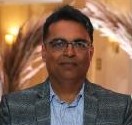

Prof. (Dr) Vivek Kumar Jha
Principal
Department of Audiology and Speech Language Pathology
Sumandeep Vidyapeeth (Deemed to be University)
Vadodara, Gujarat
Mob.No.-9560276840
Email ID: jhavivek98@yahoo.com




